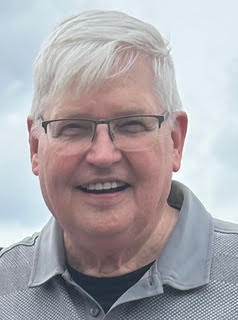Because: Why We Read Scripture: Exploring Meaning, Not Just Rules

Why We Read Scripture: Exploring Meaning, Not Just Rules
In this insightful and reflective episode of To Be and Do, host Philip Amerson invites us into a “because moment,” where he explores the question: Why do we live as people of faith? This week’s focus is on how we approach and interpret scriptures—a subject close to Philip’s heart and crucial for anyone on a spiritual journey.
Philip opens the episode by acknowledging his own spiritual practice: reading a chapter of scripture each morning, recently starting (somewhat unintentionally) with the Gospel of John. He encourages listeners to do the same, but not just as a routine or checklist item. Instead, he challenges us to dive into the diversity and depth found within the sacred texts.
Using relatable stories and examples, Philip explains that scripture is far more than a rule book or a collection of spiritual remedies. It’s a library—a gathering of poetry, history, songs, sermons, prophecy, and even the cryptic symbolism of apocalyptic visions. This richness, he notes, is sometimes lost when people misquote or misinterpret familiar verses.
A particularly enlightening moment in the episode comes when Philip recounts hearing a young man on television use the phrase “turn the other cheek” incorrectly, framing it as a form of retribution or cosmic payback. Philip gently corrects this misunderstanding, reminding us that Jesus’s call to turn the other cheek is about responding to insult or betrayal not with retaliation, but with radical grace—a genuinely difficult but powerful practice for people of faith.
He points out another common misreading: “the rain falls on the just and the unjust.” Rather than a cynical comment on suffering, Phillip clarifies that, in the arid Middle East, rain is a blessing. The verse is about God’s grace being poured out universally, not indiscriminately distributed hardship.
Philip encourages listeners to actively engage with scripture—struggling with the text, questioning, and seeking to understand what’s truly being said, rather than accepting easy or mistaken interpretations.
He ends by inviting us to read the second chapter of John, reflecting especially on the story of Jesus turning water into wine, promising to return to discuss its deeper meanings in future episodes.
Key Takeaways:
- Scripture is not just a rule book—it’s a diverse library meant to be read thoughtfully and deeply.
- Misusing scripture can lead to missing its core, often counterintuitive, messages.
- Familiar verses like “turn the other cheek” or “the rain falls on the just and the unjust” are often misunderstood—context and cultural background matter.
- Engage actively with scripture: read, question, and wrestle with its meaning as part of living a life of faith.
- Begin with a chapter a day—Phillip suggests the Gospel of John—and allow its stories to spark deeper reflection.
Join us next time for more thoughtful, faith-filled conversation. God bless!
Philip Amerson [00:00:00]:
Hello again. This is Phil Amerson with another brief moment, a because moment. Why do we live as people of faith? Well, because. And today I want to talk about scriptures. You know, in the past I've encouraged you to read a chapter a morning. And so I started, I don't know why, with the Gospel of John. It's a little more difficult maybe than some of the gospels. Let me, let me share this.
Philip Amerson [00:00:31]:
That may be helpful. The scriptures are not written as a rule book or as a spiritual remedy collection. Scriptures are a library with many different kinds of books written by people over the ages and in various formats. There is poetry, there is history, there is the opportunity for song and for sermon and for prophecy. And there are strange scriptures that are apocalyptic, that are full of symbols about the future or about what life is about. I recently heard of young men on television who clearly was using scripture and he didn't know he was using it wrongly. He was saying, you know, when, when these politicians pick on the other party, they're going to learn someday that they're going to have to turn the other cheek and they'll get back what they're giving. I laughed and I thought that's not what Jesus said about turning the cheek at all.
Philip Amerson [00:01:54]:
It's not about retribution. It's about when someone is abusive or betraying you. The response isn't to fight back. It, it is to turn the other cheek. It's a big difficult way to think about what we're called to as people of faith. The other funny one, people will say, oh, you know, it's wet outside. Well, you know, as the scriptures say, the rain falls on the just and the unjust. So it's a rainy day, we'll just have to take it.
Philip Amerson [00:02:34]:
It's just the opposite of what the scriptures mean. The rain falls on the just and the unjust is saying, in this arid, dry world of the Middle east, the good thing comes with rain. And so rain falls on the just and the unjust. Oh, scriptures are so critical. But unless you're reading them and struggling to think about what's being said so quickly, we turn what is meant in the scripture upside down and inside out. So read a little bit. The Gospel of John, the second chapter talks a bit about Jesus turning water into wine. And then it goes on in that, in that story, in that second chapter to share about what it means to be a person of faith in this world.
Philip Amerson [00:03:37]:
And I won't bore you with all that story, but it's a pretty important one. Take a look at the second chapter of John, and we'll talk about it another time. Soon. God bless.







